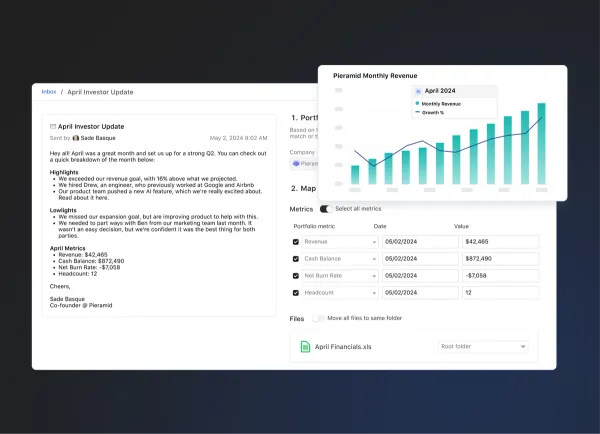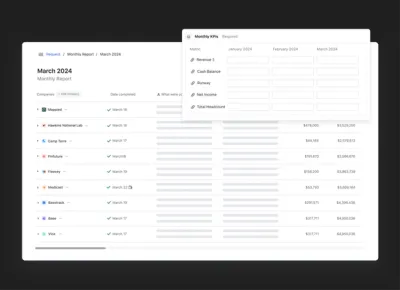
The Investor Due Diligence Checklist: How to Treat New VCs Like Business Partners

You can look at adding an investor to your company in one of two ways; simply a source of capital, or a partner to help you grow your business. As Sangram Vajre, Founder of Terminus, puts it, “Finding a VC firm is almost like finding a co-founder. Any due diligence that you would do to add a co-founder you should do when adding a VC partner.”
If you opt to find a VC that you can count on to add value outside of capital, it is your job as a founder to ensure you’re adding the proper partner. Due diligence is a part of the funding process that all founders are expected to complete. You can flip this process on its head by asking the same of your potential investors.
Related Resource: Startup Fundraising Checklist
While it does not need to be a formal process, you can follow the investor due diligence checklist below to confirm you can rely on your new investors as a business partner:
Tell them what you’re up to. Be transparent.
The key to a strong relationship with any business partner starts with open and honest communication. To get things started on the right foot, you’ll want to be transparent as possible with potential investors that you are performing due diligence.
As an added bonus, if they’re helpful and open to the idea, that is probably a good sign of future communication, transparency, and help you’ll receive.
A quick Google search.
As most research goes, a quick Google search is a great place to start. Check out their LinkedIn, Twitter, Crunchbase, and other social profiles. Ideally, most of this research would be done before you’ve emailed a potential investor, but here are a couple of simple things to keep in mind:
- Location – Where are you located? Do you need local investors? Or maybe you are looking for connections and networks in strategic geographies.
- Industry Focus – What type of company are you? Where should your future investors/partners be focused? e.g. If you’re a B2B SaaS company don’t waste your time with marketplace-focused investors. Mark Suster suggest that it is best to prioritize investors with companies in your space.
- Stage Focus – What size check/round are you raising? e.g. If you’re raising a $1M seed round avoid a firm
What is their financial status?
One of the less obvious steps when evaluating a potential investor is finding where their funds are coming from. While most funds are made up from larger institutions like pension funds, endowments, family offices, corporations, etc. it is never a bad idea to look into the venture fund’s limited partners. Don’t be surprised to find VCs that keep their LPs names under wraps but if they are open and willing to share this information that can be a good indicator of an open relationship.
Talk to other founders in their portfolio.
Arguably the most important step in performing due diligence on your investors is talking with other founders in their portfolio. Ask the other founders what it has been like to work the investor, where they’ve brought the most value, how they’ve handled disagreements, etc. Investors will likely give you a list of contacts to reach out to but don’t be afraid to reach out to other founders outside of their references.
If you have any investors already in your network ask them about the reputation of your new investor or any experiences they’ve had in the past.
Do their values & culture match?
As a founder, you own the values of your business. It is your duty to keep your ethics and moral framework in tact as you continue to add partners. As Brock Benefiel, author of Flyover Startups, put it, “Pitching investors is a trust exercise all of its own. You’re almost always sharing proprietary information in an investment deck and almost never securing a NDA to prevent potential VC vultures from flying away with your secrets. If you’re willing to easily hand over precious data points and secret product information, you’ve earned the right to demand investors take your code of ethics seriously.”
At the end of the day, your investors goal is to generate returns. By using a quick due diligence checklist it can be an easy way to ensure both parties will get the most value from your new relationship.
Are you ready to get your fundraising process started? Sign up for a free Visible trial to start emailing and nurturing potential investors.



